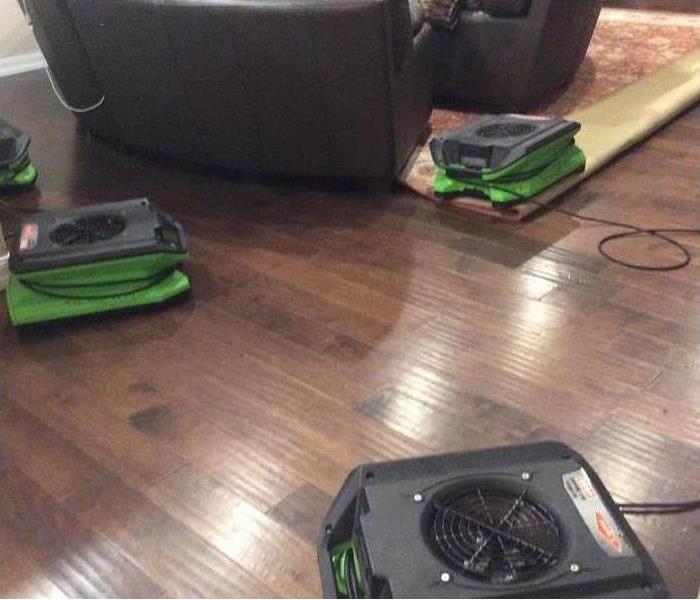Do frozen pipes always burst?
1/4/2023 (Permalink)
As winter approaches and temperatures drop, it’s important to be aware of the dangers that come with frozen pipes. In extreme cold weather, water can freeze inside a pipe and cause it to burst. But does this happen every time a pipe freezes? Let’s take a closer look at the risks associated with frozen pipes and how you can prevent them from happening in your home.
What Causes Frozen Pipes?
Pipes can freeze when temperatures dip below 32 degrees Fahrenheit for extended periods of time. The water inside a pipe expands as it turns into ice, putting pressure on the walls of the pipe and causing them to become brittle. If there is too much pressure, the pipe will eventually break, leading to flooding and serious damage in your home or business.
Dealing with a burst pipe? Contact a water restoration company now.
Why Do Frozen Pipes Burst?
When water freezes, it expands in volume by up to 9% - this is why ice cubes swell in size when left in the freezer overnight. As a result, the freezing process causes immense pressure on the pipe walls, which can lead to a dramatic increase in pressure or even a complete rupture. This sudden increase in pressure is what causes frozen pipes to burst.
When Will Frozen Pipes Burst?
Whether or not a frozen pipe will burst depends on a variety of factors including the temperature of the pipe, its age and condition, and how long it has been subjected to extreme cold temperatures. Generally speaking, however, if an area has experienced particularly frigid temperatures for several days or weeks at a time then there is an increased risk that your pipes may freeze and eventually burst.
How Can You Prevent Frozen Pipes?
The best way to prevent frozen pipes is by taking proactive steps before temperatures start to drop.
First, make sure all exposed pipes are insulated against the cold. You should also disconnect hoses from outdoor faucets and shut off any valves connected to outside water sources.
Additionally, keep cabinet doors open during cold snaps so warmer air can circulate around plumbing systems in your home or business.
Finally, if temperatures drop significantly below freezing for an extended period of time, you should run taps (hot and cold) at a trickle level throughout your house or building so that water keeps moving and doesn’t freeze in the pipes.
What Should I Do If My Pipes Freeze?
If you find yourself dealing with a frozen pipe, it’s best not to panic and instead take immediate action by turning off your water supply at the main shutoff valve and calling a plumber right away.
A professional plumber will be able to inspect your pipes and provide solutions for thawing them out without risking further damage or bursting. Additionally, opening cabinet doors under sinks or near exposed plumbing fixtures can help increase air circulation around these areas so heat can reach them faster.
Frozen pipes are an all too common problem faced by homeowners during colder months of the year but understanding how they freeze and how you can prevent them from doing so is key for avoiding expensive repairs due to burst piping or water damage caused by leaking frozen pipes. Taking preventive measures such as proper insulation of exposed piping or investing in a heating system for extreme climates along with knowing what steps should be taken if you discover a frozen pipe will equip you with all that you need to know about preventing costly repairs caused by frozen plumbing woes this winter season!






 24/7 Emergency Service
24/7 Emergency Service
